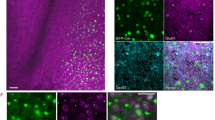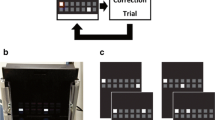Abstract.
Rationale: Understanding the mechanistic basis of working memory, the capacity to hold representation "on line," is important for delineating the processes involved in higher cognitive functions and the pathophysiology of thought disorders. Objectives: We compared the contribution of glutamate and dopamine receptor subtypes to temporal aspects of working memory using a modified rodent spatial working memory task that incorporates important elements of clinical working memory tasks. Methods: A discrete paired-trial variable-delay T-maze task was used. Initial characterization studies indicated that performance on this task is stable at seconds-long retention intervals, is sensitive to retention interval and proactive interference, and is dependent on the integrity of the medial prefrontal cortex. Results: Consistent with clinical findings, low dose amphetamine (0.25 mg/kg) produced a delay-dependent improvement in performance, while higher doses impaired performance at all retention intervals. D1 receptor blockade produced the predicted dose- and delay-dependent impairment. D2 receptor blockade had no effect. Activation of metabotropic glutamate 2/3 (mGluR2/3) receptors, which in the prefrontal cortex inhibits the slow asynchronous phase of glutamate release, also produced a delay-dependent impairment. Low doses of an AMPA/kainate antagonist had effects similar to the mGluR2/3 agonist. In contrast, NMDA receptor antagonist-induced impairment was memory load-insensitive, resulting in chance-level performance at all retention intervals. Conclusions: These findings suggest that activation of NMDA receptors is necessary for the formation of mnemonic encoding while modulatory components involving slow asynchronous release of glutamate and phasic release of dopamine contribute to the active maintenance of information during the delay period.
Similar content being viewed by others
Author information
Authors and Affiliations
Additional information
Electronic Publication
Rights and permissions
About this article
Cite this article
Aultman, J., Moghaddam, B. Distinct contributions of glutamate and dopamine receptors to temporal aspects of rodent working memory using a clinically relevant task. Psychopharmacology 153, 353–364 (2001). https://doi.org/10.1007/s002130000590
Received:
Accepted:
Published:
Issue Date:
DOI: https://doi.org/10.1007/s002130000590




